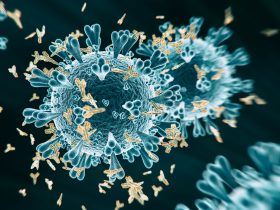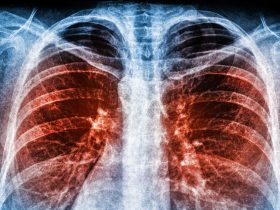Coronavirus disease 2019 (COVID-19) is a highly contagious respiratory disease resulting from a life-threatening novel coronavirus, severe acute respiratory syndrome coronavirus 2 (SARS-CoV-2). It has spread rapidly across the globe, resulting in over 198 million confirmed cases and 4 million deaths as of 2 August 2021.1,2 SARS-CoV-2 is an enveloped RNA virus that belongs to the genus Betacoronavirus of the family Coronaviridae, which includes well-known severe acute respiratory syndrome coronavirus (SARS-CoV) and Middle East respiratory syndrome coronavirus (MERS-CoV).3 Advancement in the management of these coronaviruses and other viruses, such as influenza virus H1N1 and Ebola infections, has provided insight into treating COVID-19. However, a portion of patients develop serious disease and subsequent complications including sepsis and septic shock, largely as a result of aberrant host inflammatory responses.4,5 Sepsis and its related conditions are associated with 20% of total deaths and 20 deaths every minute globally.6 Of patients with COVID-19, 6.8%–100% are diagnosed with sepsis.7–9 A retrospective study of hospitalized patients with COVID-19 showed that, of the non-survivors, 100% of patients had sepsis and 70% were noted to have septic shock.10 Unfortunately, there is a lack of mechanistic understanding of septic progression linked to pathogen-mediated pathogenesis and host immune response, impeding the discovery of effective treatments.
More than 3600 active clinical trials for COVID-19 are under way.11,12 According to the World Health Organization (WHO), there are more than 154 candidate vaccines in preclinical evaluation and 44 candidate vaccines in phase 1 trials or beyond (last updated: 25 October 2020), several of which have entered phase 3 large-scale randomized clinical trials and shown benefits.13 Unexpected side effects and immune-escape mutations pose a great challenge for the safety and efficacy of vaccines.14 Chloroquine15,16 and its hydroxyl analog hydroxychloroquine,17 lopinavir/ritonavir,18–20 and remdesivir,16,21 developed for treating malaria, human immunodeficiency virus (HIV), and Ebola virus, respectively, have been suggested as treatments for COVID-19 and are being tested in clinical trials. However, some clinical trials have shown that these drugs have little or no effect on the treatment of patients hospitalized with COVID-19.22–26 Drug repurposing is a fast and cost-efficient approach to identifying new potential uses for existing drugs to treat different diseases.27 Hence, there is an urgent need to search for repurposed drugs.
COVID-19 is not the first outbreak of zoonotic coronaviruses. The severe acute respiratory syndrome (SARS) outbreak, first identified in the Guangdong Province of southern China in 2002, lasted for eight months, resulting in 8098 confirmed human cases in 29 countries, with 774 deaths (case fatality rate of 9.6%).28,29 Approximately 10 years later, in 2012, Saudi Arabia isolated another highly pathogenic coronavirus, MERS-CoV, from the sputum of a male patient who died of acute pneumonia and renal failure.30 MERS-CoV caused an outbreak with 2260 cases and 803 deaths (case fatality rate of 35.5%).31,32 Although COVID-19 has caused fewer fatalities than SARS and MERS, older patients with comorbidities tend to experience more severe symptoms, making them more vulnerable. Most patients infected with SARS-CoV-2 display mild symptoms and generally have a good prognosis, classified as mild COVID-19.18,33 However, a large proportion of patients, especially older men with underlying chronic diseases, have rapidly progressed to severe COVID-19 and suffered from respiratory distress requiring emergent medical interventions.34 Unfortunately, as yet, there are no specific and effective drugs for COVID-19.11,12
Recent studies have shown the critical roles of host immune responses in protection and the pathogenesis of respiratory viral infections, for instance, SARS-CoV, MERS-CoV, and influenza A viruses.35,36 Liao et al.37 reported that an increase in CD8+ T cells in patients with COVID-19 correlates with an improved outcome. They also proposed therapeutic strategies by targeting the myeloid cell compartment to treat COVID-19-associated inflammation.
There is an urgent need to find potentially useful drugs for COVID-19 among currently available drugs. Drug repurposing is an essential and universal strategy in developing new drugs and a potentially important strategy for discovering existing medicines to tackle COVID-19.38 It may facilitate the discovery of new mechanisms of action for existing drugs, which would be less time-consuming and more cost-effective than discovery of novel drugs, and the pharmaceutical supply chains for formulation and distribution already exist.39,40 Gordon et al.41 also reported 69 repurposable known compounds targeting 66 human proteins based on 332 high-confidence SARS-CoV-2-human protein-protein interactions, which were physically associated using affinity-purification mass spectrometry. Another study42 presented data on the antiviral activity of 20 FDA-approved drugs against SARS-CoV-2 that have previously been shown to inhibit SARS-CoV and MERS-CoV. Another research team43 conducted a high-throughput analysis of the ReFRAME library to identify 30 candidate existing drugs that prevent SARS-CoV-2 from replicating in mammalian cells. In a study44 based on public data of patients with pulmonary fibrosis and the Library of Integrated Network-Based Cellular Signatures (LINCS),45 several drugs targeting ACE2 were identified to be repurposable against COVID-19.








Leave a Reply